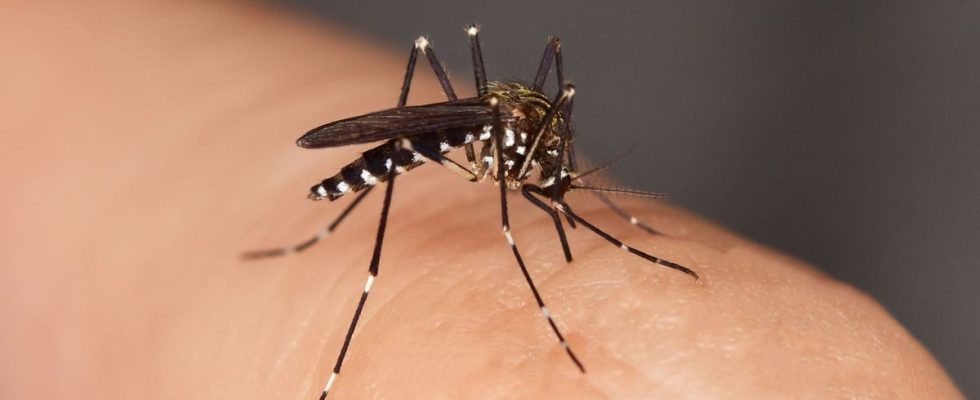Published on
Updated
Reading 2 min.
in collaboration with
Dr Gérald Kierzek (Medical Director of Doctissimo)
Metropolitan France is facing a significant increase in dengue cases. In total, 1,361 imported cases are currently recorded in the country since January 1. While there were only 122 last year, at the same period.
The number of cases of dengue imported into France is increasing sharply between 2023 and 2024. While there were “only” 122 cases at the same period last year, the count reached 1,361 cases recorded between the 1er January 2024 and today.
What is dengue, this viral disease transmitted by tiger mosquitoes?
A viral disease usually circulating in hot countries, dengue is gaining ground in Europe. The Director General of Health, Grégory Emery, himself calls for “vigilance” from doctors in the face of this arbovirus.
The dengue virus originally comes from Southeast Asia. But faced with the proliferation of the tiger mosquito of the Aedes genus almost everywhere in France, cases of contamination are increasing in the country. “We are currently facing imported contaminations, which affect people returning from travel.” recalls Dr. Gérald Kierzek, emergency physician and medical director of Doctissimo. “But it is not impossible to see the emergence of indigenous cases, that is to say patients contaminated in France, by the virus”.
What are the symptoms of dengue?
“The majority of cases of dengue are asymptomatic“recalls the emergency doctor. However, in certain cases, patients contaminated with the virus can develop high fever, abdominal, joint and muscle pain, vomiting, chills, nausea and sometimes a rash.
“In the event of very severe symptoms – acute pain or hemorrhagic signs – or contamination in a fragile patient – immunocompromised for example – a rapid consultation with the doctor is necessary. advises Gérald Kierzek. “Otherwise, the paracetamol remains the reference treatment to take“, avoiding aspirin and non-steroidal anti-inflammatory drugs (NSAIDs). The medical director of Doctissimo points out that there is no vaccine against the virus and that the best protection is prevention against injections.
According to Public Health France, Aedes mosquitoes “grow mainly in urban areas and move little during their life“.
So pay attention to the places that can be created, which will be favorable for the laying of female mosquito eggs, such as “vases, saucers, used tires, poorly emptied gutters, various waste containing stagnant water, but also tree hollows, certain plants likely to form water retention” warns SPF.
To avoid being bitten, it is also recommended to use “repellent sprays or creams, coils, electric diffusers, long clothing and mosquito nets” continues SPF, which recalls that mosquitoes bite especially during the day and outside homes.
